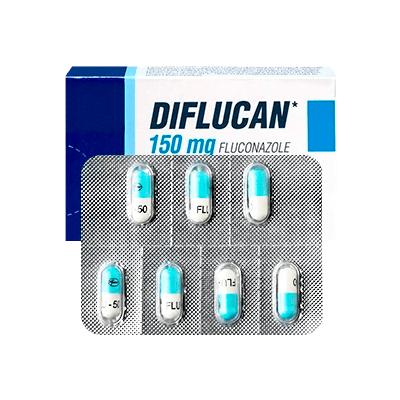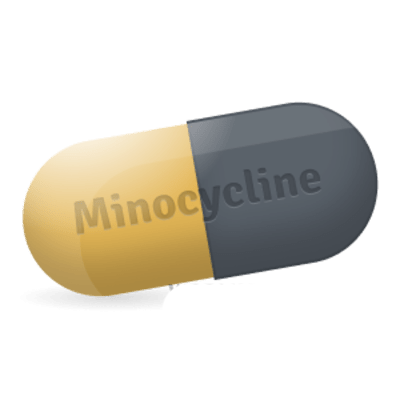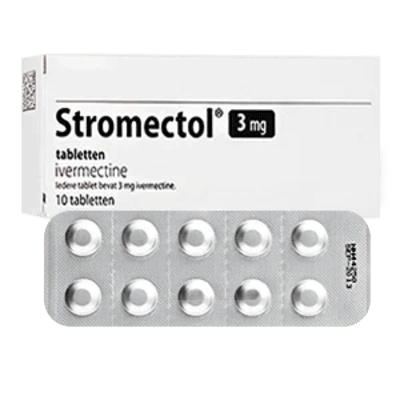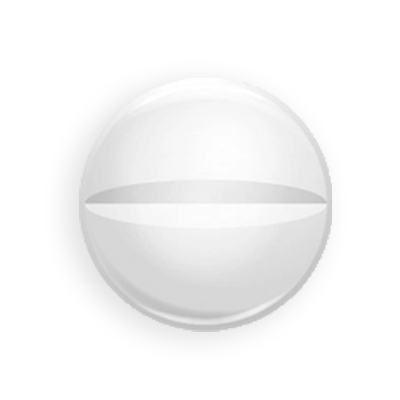I was pleasantly surprised how quickly Difflucan removed all the symptoms of thrush. I felt relief after just one day, although I continued the treatment as prescribed. I had no side effects, the drug worked perfectly.

Diflucan
- Quality products
- Support 24/7
- Fast delivery
What is it?
Diflucan is an antifungal antibiotic used to treat a variety of infections caused by fungi, such as candidiasis. These infections may include vaginal, throat, yeast, urinary tract, peritonitis, and pneumonia. Diflucan works by interfering with the formation of the fungal cell membrane to kill susceptible fungi. The drug effectively fights infections by helping to destroy pathogens and preventing them from spreading further.
Composition
Diflucan contains active ingredients that help fight fungal infections. The main active ingredient is fluconazole, which has an antifungal effect. It is also important to note that the composition of the drug may include auxiliary components that improve its effectiveness and stability.
- Fluconazole is the key component that provides the antifungal activity of the drug.
- Auxiliary substances that maintain the form and stability of the drug.
- Components that promote rapid absorption and action of fluconazole.
These substances work in combination, providing reliable and effective treatment of fungal infections.
How to use?
For best results, Diflucan should be taken exactly as prescribed by your doctor. It is recommended to take the drug once a day with a full glass of water. It can be taken with or without food. This will help you achieve optimal results and avoid possible side effects.
- Take the drug regularly at the same time every day.
- Follow the prescribed dosage depending on the nature of the infection.
- If your condition improves, complete the course of treatment.
After you start taking Diflucan, you may notice improvement within 24 hours, but it may take several days for symptoms to completely disappear. It is very important to stick to the treatment plan prescribed by your doctor, even if you are feeling better.
How does it work?
Diflucan works by inhibiting fungal activity through its effects on the cell membranes of fungi. By interfering with the synthesis of the cell membrane, fluconazole disrupts the structure of the fungi, ultimately killing them and preventing further reproduction. This action makes Diflucan particularly effective against many types of fungal infections, as it disrupts their natural growth and division processes.
Taking fluconazole allows you to actively fight fungi at the cellular level, slowing their growth and reproduction. This is achieved by inhibiting an important enzyme that fungi need to form their protective membrane. When fungi are unable to produce the necessary components for their cell membrane, they become vulnerable and die.
Indications
Diflucan is indicated for the treatment of various fungal infections. It can be used as an independent remedy or as part of complex therapy to enhance the effect. The main indications for use include various infectious diseases caused by pathogenic fungi.
- Treatment of vaginal candidiasis and other genital infections caused by fungi.
- Therapy of throat and skin fungal infections.
- Treatment of fungal infections of internal organs, such as the lungs and peritonitis.
- Prevention of fungal infections in patients with weakened immunity.
- Prevention of relapses of fungal infections in patients with cryptococcal infections.
These indications make Diflucan a universal remedy in the fight against various fungal pathologies.
Contraindications
Despite its high efficiency, Diflucan has a number of contraindications that must be taken into account when using it. This is extremely important to prevent adverse reactions of the body to the drug. First of all, contraindications concern hypersensitivity to the components of the drug.
- The presence of an allergy to fluconazole or other antifungal drugs from the azole group.
- Patients with severe liver or kidney disease should consult a doctor before starting the course.
- Use during pregnancy and breastfeeding without consulting a doctor is contraindicated.
- It is not recommended to use the drug for people with liver dysfunction without examination and recommendations of a specialist.
These contraindications help ensure the safety of using Diflucan and reduce the risk of side effects.
Side effects
Diflucan, like most medications, can cause some side effects. Although not all patients experience them, it is important to know about them and be prepared for possible reactions. First of all, this applies to people with low tolerance to its components.
- Dizziness and mild headaches that may appear as a result of the drug.
- Loss of appetite and nausea are indicators that should be paid attention to during the course of treatment.
- Changes in liver function, expressed in changes in laboratory parameters.
- Allergic reactions, including skin rashes and itching, although they are rare.
If you notice any of the above symptoms, you should consult a doctor for advice and possible adjustment of the course of treatment.
Frequently asked questions
Diflucan Reviews and Experiences
I took Difflucan on the advice of a doctor to treat a fungal infection. At first I was a little worried about possible side effects, but everything worked out. The drug helped faster than I expected, and I did not notice any noticeable deterioration in my health.
My husband had an infection and the doctor prescribed him Diflucan. The drug worked quickly, all the unpleasant symptoms disappeared. He complained of slight dizziness, but otherwise tolerated the treatment well.









